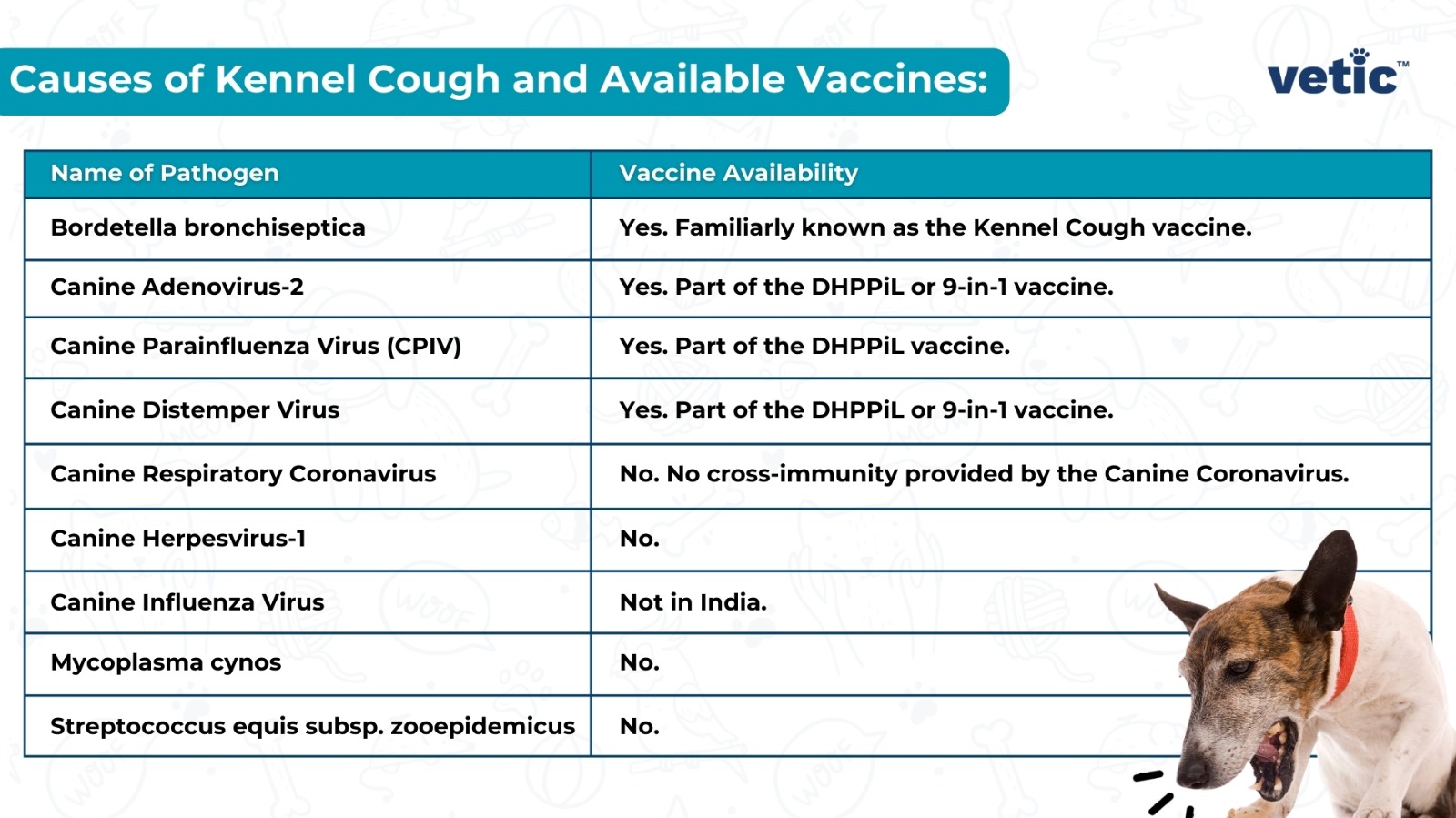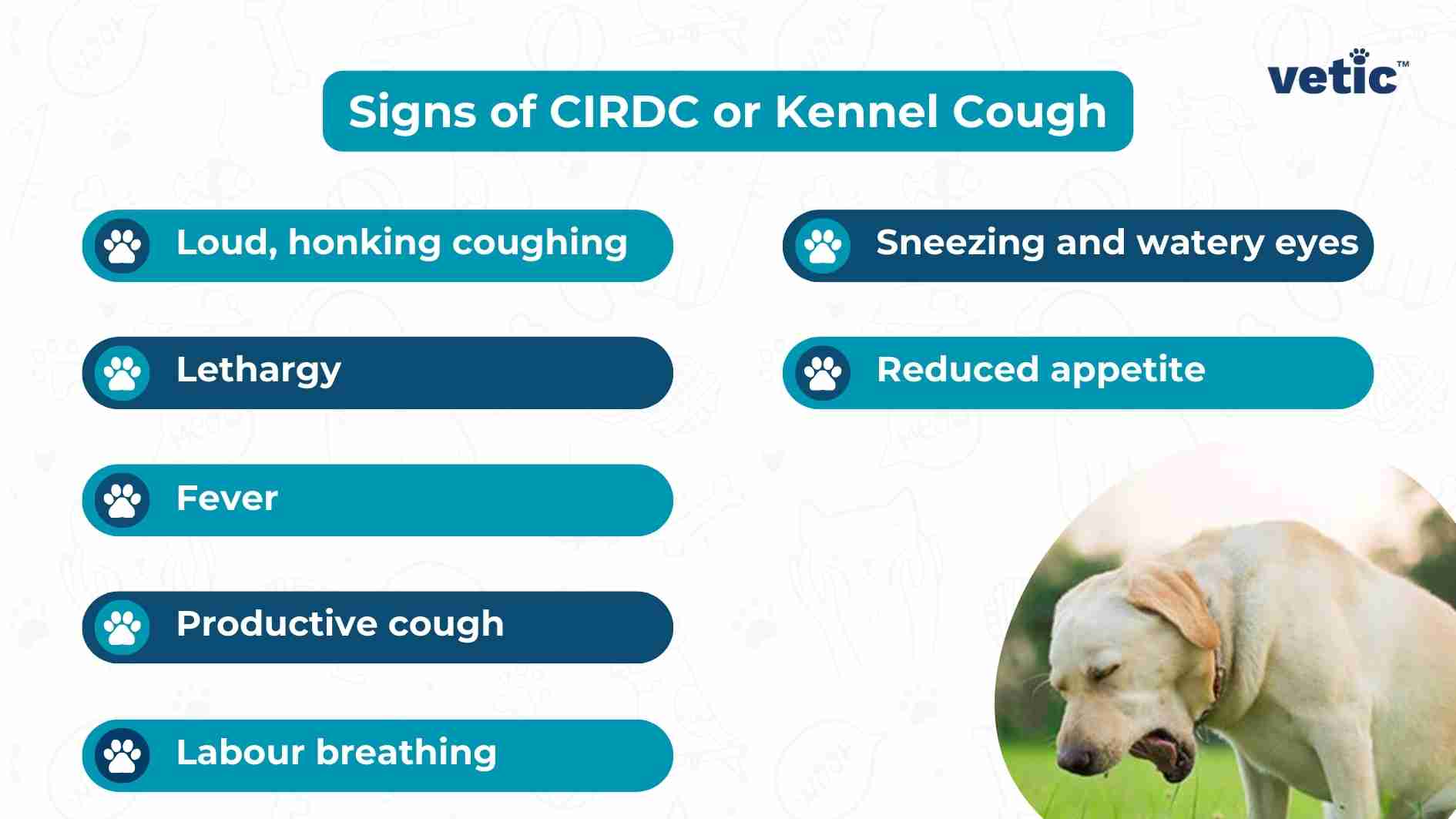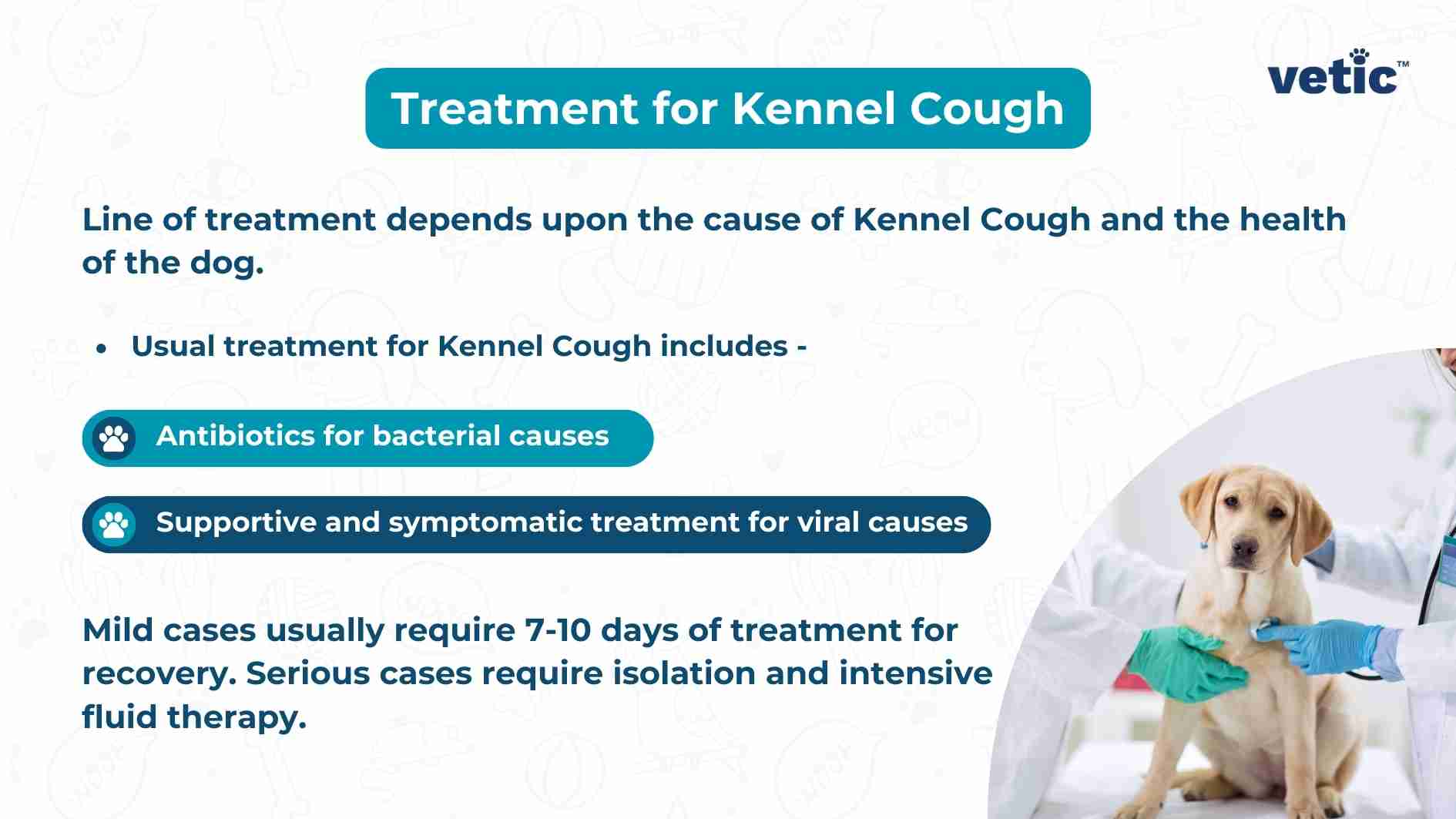Canine infectious respiratory disease complex (CIRDC) refers to multiple respiratory infections in dogs that are contagious. CIRDC is commonly called Kennel Cough, but it can be caused by multiple infectious agents.
Why is CIRDC commonly called Kennel Cough?
CIRDC is common when multiple dogs live in a confined environment. Kennel cough gets its name from the rapid onset and spread of the signs of CIRDC inside kennels, shelters, dog boarding and multi-dog households.
What Pathogens cause Kennel Cough or CIRDC?

Extensive research has shown that CIRDC is most frequently caused by Bordetella bronchiseptica.
The other common pathogens that have caused CIRDC include canine adenovirus type-2 (CAV-2), canine respiratory coronavirus and canine parainfluenza virus (CPIV).
In the last three decades, other pathogens have been identified as the causal agents of CIRDC including canine herpesvirus-1, canine influenza virus, canine distemper virus (CDV), Mycoplasma, Streptococcus equis subsp. zooepidemicus.
A dog can be infected with two or more of these viruses and bacteria that cause CIRDC.
How does CIRDC (Kennel Cough) spread?
The pathogens associated with CIRDC can spread through coughing, and sneezing. Some also spread through contact with saliva and other bodily fluids.
It can also spread through indirect contact via used bedding, clothes, bowls and toys.
Humans can help in spreading CIRDC (especially of viral origin) by petting an infected dog and then petting another healthy dog or puppy.
What are the signs of CIRDC?

The main telltale sign of CIRDC is a non-stop, loud, honking cough.
The cough can cause gagging, retching and produce froth that looks like vomit. The cough typically becomes worse with exercise.
Some dogs may end up vomiting or producing phlegm after a serious bout of coughing.
However, you must remember that not all dogs have coughs. Some dogs only have a runny nose and watery eyes. Some may end up sneezing a lot!
While most dogs can recover within a week or 10 days, some dogs may develop more serious signs of CIRD –
- Lethargy
- Reduced appetite
- Fever
- Labour breathing
- Productive cough
These are common signs of more severe infections such as canine distemper virus (CDV), canine parainfluenza virus, canine respiratory coronavirus and canine influenza virus.
Dogs with CDV typically have multiple system involvement. They can show other signs such as gastroenteritis (diarrhoea, bloody diarrhoea, vomiting) and neurological signs (head tilt, twitching and grand mal seizures). CDV doesn’t have any cure. Infected pups and dogs typically have a lifetime of neurological complications. The mortality rate of pups from CDV is as high as 95%.
How is CIRDC or Kennel Cough Diagnosed?
CIRDC or Kennel Cough requires multiple tests and physical check-ups.
For mild cases of CIRDC, your veterinarian will make a presumptive CIRDC diagnosis and treat your dog symptomatically in addition to prescribing broad-spectrum antibiotics.
If your dog’s coughing, sneezing and sniffling doesn’t reduce, your veterinarian may recommend further diagnostic tests.
While the veterinarian might be able to tell whether a dog has signs of bronchial congestion or pneumonia, it’s impossible for anyone to determine the cause (microorganism) of CIRDC.
Your veterinarian will require your dog’s vaccination records and health records.
Next, your vet will recommend diagnostic tests including chest X-rays, complete blood count (CBC), canine distemper virus (CDV) test, if your dog has chronic and severe coughing and congestion.
What’s the Treatment for CIRDC or Kennel Cough?

The treatment for kennel cough depends on the cause.
If the cause is viral, some cases may demand the use of serum antigens and immunity boosters. Highly contagious viral diseases such as distemper do not have any specific cure or protocol for treatment. Vets can only treat dogs based on the symptoms they show.
If the cause is bacterial, your dog may benefit from the right type and dose of antibiotics prescribed by the veterinarian.
You should never choose the antibiotic or adjust the dose on your own. Always speak with the veterinarian for the right treatment for CIRDC.
If your dog has been sick for longer than a week, you absolutely need to visit a veterinarian. Dogs suffering from CIRDC for long periods have higher chances of developing bacterial pneumonia.
Can You Prevent CIRDC or Kennel Cough?
No matter how much we love our dogs, it’s not always possible for us to protect them completely. Nonetheless, we can only try!
- Keep your dog’s vaccines updated at all times.
- If you see another dog with signs of kennel cough, keep your dog away.
- Double-check with your boarding/kennel about coughing or sneezing outbreaks before dropping your dog off.
- Don’t let your dog drink or eat from bowls shared by other dogs.
- Don’t let your dog play with toys of other dogs.
NOTE: Core vaccines DHPPiL and Kennel Cough vaccines protect against CDV, Canine Parainfluenza virus (CPIV), Bordetella spp, and Canine Adenovirus-2. However, Canine Influenza vaccine isn’t available in India and vaccines against Canine Herpesvirus-1, Canine Respiratory Coronavirus, and Mycoplasma cynos aren’t available at all. You need to maintain proper hygiene and stay vigilant for any sign of CIRDC that your dog may exhibit.
Here are the most frequently asked questions on CIRDC or Kennel Cough:
Why is CIRDC commonly called Kennel Cough?
CIRDC spreads rapidly in confined environments like kennels, hence the name “Kennel Cough.”
What pathogens cause Kennel Cough or CIRDC?
CIRDC is mainly caused by Bordetella bronchiseptica, along with other viruses like CAV-2, CPIV, and Mycoplasma.
How does CIRDC (Kennel Cough) spread?
CIRDC spreads through coughing, sneezing, and contact with infected saliva, bodily fluids, bedding, bowls, and toys.
What are the signs of CIRDC?
The main sign is a loud, honking cough, often accompanied by gagging, retching, and phlegm production.
How is CIRDC or Kennel Cough diagnosed?
Diagnosis involves physical exams, vaccination records, chest X-rays, CBCs, and tests for specific viruses like CDV.
What’s the treatment for CIRDC or Kennel Cough?
Treatment depends on the cause, including antibiotics for bacterial infections and symptomatic care for viral cases.
Can you prevent CIRDC or Kennel Cough?
Prevent CIRDC by keeping vaccines updated, avoiding sick dogs, and maintaining hygiene in shared spaces.
What is the prognosis for dogs with CIRDC?
Most dogs recover within 10 days, but severe cases can lead to complications like pneumonia, requiring veterinary care.
